
In this lesson, students will complete their presentation with their group.
- Subject:
- English Language Arts
- Material Type:
- Lesson Plan
- Date Added:
- 09/21/2015

In this lesson, students will complete their presentation with their group.

The purpose of this first Benchmark Assessment (Cold Write) is to determine what students already know about informational writing. Students will respond to a writing prompt, and you will score results as a measure of early work. Students will also discuss what makes an excellent argument and presentation, and they will develop the key parts of their argument with their group.

In this lesson, students will work with their group to begin creating their presentation.
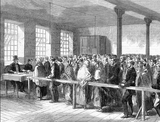
In this lesson, students will examine ways that their writer tailored his or her argument to suit his or her audience, and they'll begin to plan for how they will appeal to a modern teenage audience in their presentation.

The 12th grade learning experience consists of 7 mostly month-long units aligned to the Common Core State Standards, with available course material for teachers and students easily accessible online. Over the course of the year there is a steady progression in text complexity levels, sophistication of writing tasks, speaking and listening activities, and increased opportunities for independent and collaborative work. Rubrics and student models accompany many writing assignments.Throughout the 12th grade year, in addition to the Common Read texts that the whole class reads together, students each select an Independent Reading book and engage with peers in group Book Talks. Language study is embedded in every 12th grade unit as students use annotation to closely review aspects of each text. Teacher resources provide additional materials to support each unit.

Who decides who among us is civilized? What rules should govern immigration into the United States? Whom should we let in? Keep out? What should we do about political refugees or children without papers? What if they would be a drain on our economy?
ACCOMPLISHMENTS
Students read William Shakespeare’s play The Tempest and write a short argument about who in the play is truly civilized.
Students participate in a mock trial in which they argue for or against granting asylum to a teenage refugee, and then they write arguments in favor of granting asylum to one refugee and against granting it to another.
Students read an Independent Reading text and write an informational essay about a global issue and how that relates to their book.
GUIDING QUESTIONS
These questions are a guide to stimulate thinking, discussion, and writing on the themes and ideas in the unit. For complete and thoughtful answers and for meaningful discussions, students must use evidence based on careful reading of the texts.
What role do national identity, custom, religion, and other locally held beliefs play in a world increasingly characterized by globalization?
How does Shakespeare’s view of human rights compare with that in the Universal Declaration of Human Rights?
Who is civilized? Who decides what civilization is or how it’s defined?
How do we behave toward and acknowledge those whose culture is different from our own?
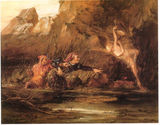
In this lesson, you'll use your detailed outline to write an initial draft of your report. You'll share your writing in triads and receive feedback. Your essay may be chosen for Author's Chair. You'll revise the body of your report and consider ways to embed multimedia elements.In this lesson, students will use their detailed outline to write an initial draft of their report. They’ll share their writing in triads and receive feedback. Their essay may be chosen for Author’s Chair. Students will revise the body of their report and consider ways to embed multimedia elements.

This project unit—a multimedia self-portrait published in digital form—is the capstone of your students' high school careers. It is a chance for them to pause and reflect on where they've been, where they're going, and who they are as a person. Students will reflect on what they want others to know about them: what they want their message to be and what types of media they might use to convey that message. Students will have the opportunity to express themselves in many different formats—through writing, of course, but also through other media of their choosing. Students will be able to convey your message through visual art, photography, a graphic novel, audio, poetry, or video—practically any type of media they want!
ACCOMPLISHMENTS
Students will complete a multimedia self-portrait, capturing important aspects of the essence of themselves.
Students will contribute one chapter from their multimedia self-portrait to a class anthology.
Students will present one chapter from their multimedia self-portrait to the class.
GUIDING QUESTIONS
These questions are a guide to stimulate thinking, discussion, and writing on the themes and ideas in the unit. For complete and thoughtful answers and for meaningful discussions, students must use evidence based on careful reading of the texts.
How is late adolescence a moment of internal and external change?
What are the most important qualities of your character—past, present, and future?
How can you portray these key aspects of yourself using multimedia?
BENCHMARK ASSESSMENT: Cold Read
During this unit, on a day of your choosing, we recommend you administer a Cold Read to assess students’ reading comprehension. For this assessment, students read a text they have never seen before and then respond to multiple-choice and constructed-response questions. The assessment is not included in this course materials.

Students will write their Artist’s Statement and upload it as the final chapter in their self-portrait. They’ll review their entire project to make final edits and plans for completing their work. For homework, they’ll finalize any remaining details and publish their project.

Students will consider the different ways that humor can be used by a writer to criticize people, practices, and institutions that he or she thinks are in need of serious reform. Students will read satirists ranging from classical Rome to modern day to examine how wit can be used to make important points about culture.
ACCOMPLISHMENTS
Students research an aspect of modern life that they would like to lampoon.
Students read from satirists across history to absorb the style and forms of humor and institutions satirized.
Students write their own satire, drawing on techniques of famous satirists to criticize their targets.
GUIDING QUESTIONS
These questions are a guide to stimulate thinking, discussion, and writing on the themes and ideas in the unit. For complete and thoughtful answers and for meaningful discussions, students must use evidence based on careful reading of the texts.
What is satire, and when is it too harsh?
How can humor and irony make you more persuasive?
What do you think is funny? How far would you go to satirize it?
Who gets more reaction—satirists or protestors?
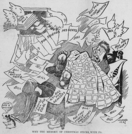
In this lesson, students begin a project that lets them enjoy satire that targets a specific topic or group. Students will be reading and viewing satires that span centuries, and identifying the satirical strategies used in the different works.
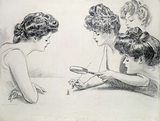
In this lesson, students will look closer at Swift’s essay to understand more fully how he works toward his purpose. Students also compare this essay with other satires they have read so far.

Students will be placed into groups and assigned a historical figure in education. Together, students will research the individual(s) and create a presentation that will inform the audience on the life and career of this individual. NOTE: This happens after we discuss education of BIPOC peoples in the United States.

This course introduces persistent themes and challenges facing planners. It emphasizes the historical roots of contemporary urban planning problems and comparative study of practice in the U.S. and other countries. It is a nine week module intended for first semester Master in City Planning students.
This Lesson Plan was created by Joanna Pruitt as part of the 2020 ESU-NDE Remote Learning Plan Project. This original lesson is for classroom use; however, there is a virtual option as well. Educators worked with coaches to create Remote Learning Plans as a result of the COVID-19 pandemic. The attached Lesson Plan is designed for Grades 9-12 English Language Arts students; however, this could also be used as a Social Studies project as well. Students will evaluate credible sources through research on genocides post World War II after completing a novel unit covering the Holocaust. Students will also create scrapbooks using summarizing, citation, informative writing, textual evidence, caption writing, and persuasive writing. Students will also be expected to demonstrate oral communication skills as they have to present their projects to the class. Students will use background knowledge to clarify text and also gain a deeper understanding by using relevant evidence from a variety of sources to assist in analysis and reflection of informative text.

This course is an intensive introduction to architectural design tools and process, and is taught through a series of short exercises. The conceptual basis of each exercise is in the interrogation of the geometric principles that lie at the core of each skill. Skills covered in this course range from techniques of hand drafting, to generation of 3D computer models, physical model-building, sketching, and diagramming. Weekly lectures and pin-ups address the conventions associated with modes of architectural representation and their capacity to convey ideas. This course is tailored and offered only to first-year M.Arch students.
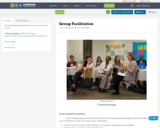
Group Facilitation guidelines from an Internet Culture course.
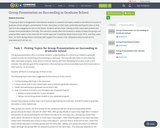
This group project is designed for international students to research into topics related to the theme of success in graduate school and give a presentation to their classmates on their topic, preferably teaching the class on that topic but also engaging the class in the lesson. Students will also listen intently as their classmates present and critique some presentations formally. The instructor usually offers the students a variety of topics but groups can propose other topics to the instructor for his/her approval. Created by Steven Harris-Scott, Ph.D., and Amy Lewis, Ed.D., for INTO George Mason University with support from Mason 4-VA. Attribution-NonCommercial 4.0 International (CC BY-NC 4.0)

This lesson provides guidance for students to create and practice a presentation about design challenge results that they developed in the previous unit lessons and how to present it to the school administration.
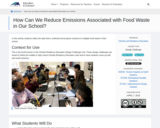
In this activity students utilize collected data and propose solutions to mitigate food waste in their school.